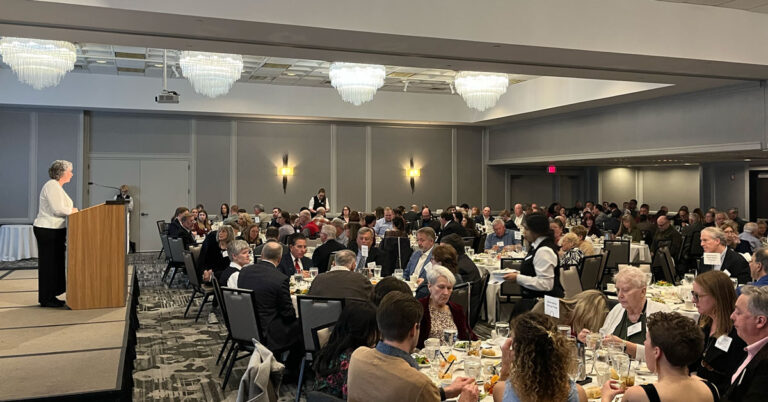The Capitol Report, produced by WisPolitics.com — a nonpartisan, Madison-based news service that specializes in coverage of government and politics — provides a weekly analysis of issues being
debated in Wisconsin state government. It is underwritten by the WNA and produced exclusively for its members. WisPolitics President Jeff Mayers is a former editor and reporter for the Associated Press and a former political writer for the Wisconsin State Journal. The WisPolitics logo can be downloaded here.
Editor’s note: This column is provided to Wisconsin Newspaper Association members by WisPolitics.com. Proper attribution to WisPolitics.com is appreciated. Also, please publish the tagline that is included at the end of the column.
Legislators ponder next steps on bills that failed to pass this session
GOP state Rep. John Spiros has tried in back-to-back sessions to push legislation that would crack down on sanctuary cities.
After it didn’t get a committee vote in his house and never made it in the Senate, he’s not sure he’s going to try a third time.
“It’s like anything else at the end of session,” Spiros said. “I don’t resurrect every time. I want to see what the need is.”
AB 190/SB 275 is just one of dozens of high-profile bills that made a stir in the Capitol this session but did not make the final cut. Some were undone by inter-house squabbles, such as a parole revocation bill the Assembly amended to add funding for district attorneys and a new prison; the Senate refused to take up the changes. Others never made it off the ground, such as a ban on the sale of fetal tissue that Republicans have been trying to find a compromise on for several years to no avail.
Spiros’ first crack at the sanctuary cities bill would have made sure local governments allow law enforcement to ask people about their immigration status once they’ve been charged with a crime. “Sanctuary cities” prohibit such questions. His bill cleared the Assembly, but never made it to the Senate floor. It also was part of the reason an estimated 20,000 people protested at the Capitol for “A Day without Latinos and Immigrants” in February 2016.
This version would have banned local governments from protecting those who are living in the country illegally by passing local ordinances obstructing enforcement of federal immigration laws, as well as require local municipalities and counties to comply with detainers issued by U.S. Immigration and Customs Enforcement. It also included penalties for those communities that did not comply.
Spiros, R-Marshfield, said he was trying to work with sheriffs on changes they wanted.
“I didn’t push it, because I knew there was work that needed to be done,” he said.
Another bill that failed to pass this two-year session was dubbed the “dark stores” legislation, SB 291/AB 387 and SB 292/AB 386.
Republicans struggled with the issue of so-called dark stores and ran into heavy opposition from Wisconsin Manufacturers & Commerce. Republicans introduced two bills aimed at stopping the use of closed or vacant properties being valued the same as occupied retail properties.
WMC argued the push amounted to a tax hike on businesses, which they said have had their assessments inflated by local officials.
Senate Majority Leader Scott Fitzgerald, R-Juneau, said he’s looking at creating a commission on the issue. Angela Roidt, a spokeswoman for Senate President Roger Roth, said the Appleton Republican is working to put the committee together with members from both houses.
“The goal right now is to get a little more educated and more in-depth on the issue so moving forward, everyone is a little more comfortable for next session,” she said.
Dems knocked Republicans for not taking up the legislation this session considering the bipartisan support; one of the bills had 66 Assembly co-sponsors, including 34 Republicans.
“This is a green light for a growing number of retailers – large and small – to contest their assessments,” Assembly Minority Leader Gordon Hintz, D-Oshkosh, said. “Continued inaction results in lost revenue that will increasingly be made up by increased property taxes on residential homeowners and small businesses.”
The Capitol Report is written by editorial staff at WisPolitics.com, a nonpartisan, Madison-based news service that specializes in coverage of government and politics, and is distributed for publication by members of the Wisconsin Newspaper Association.
Copyright © WisPolitics.com



